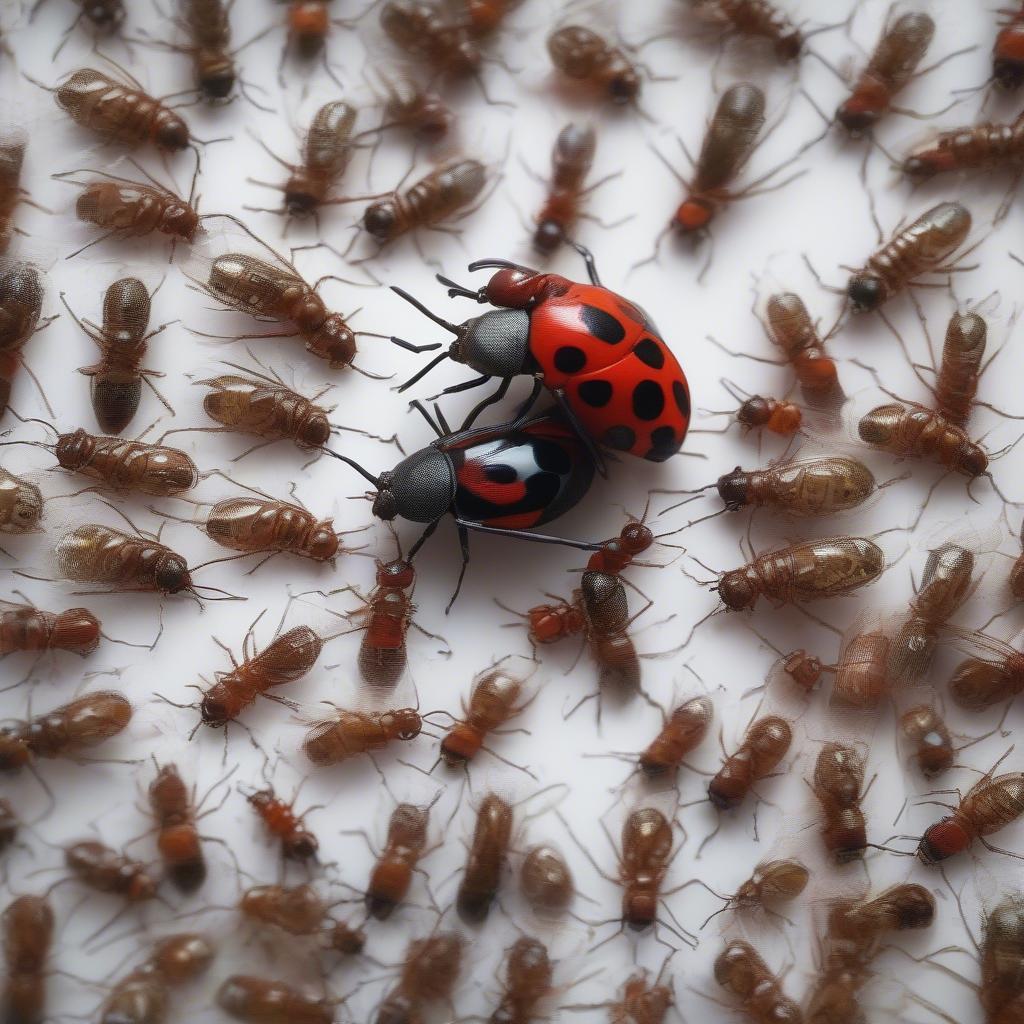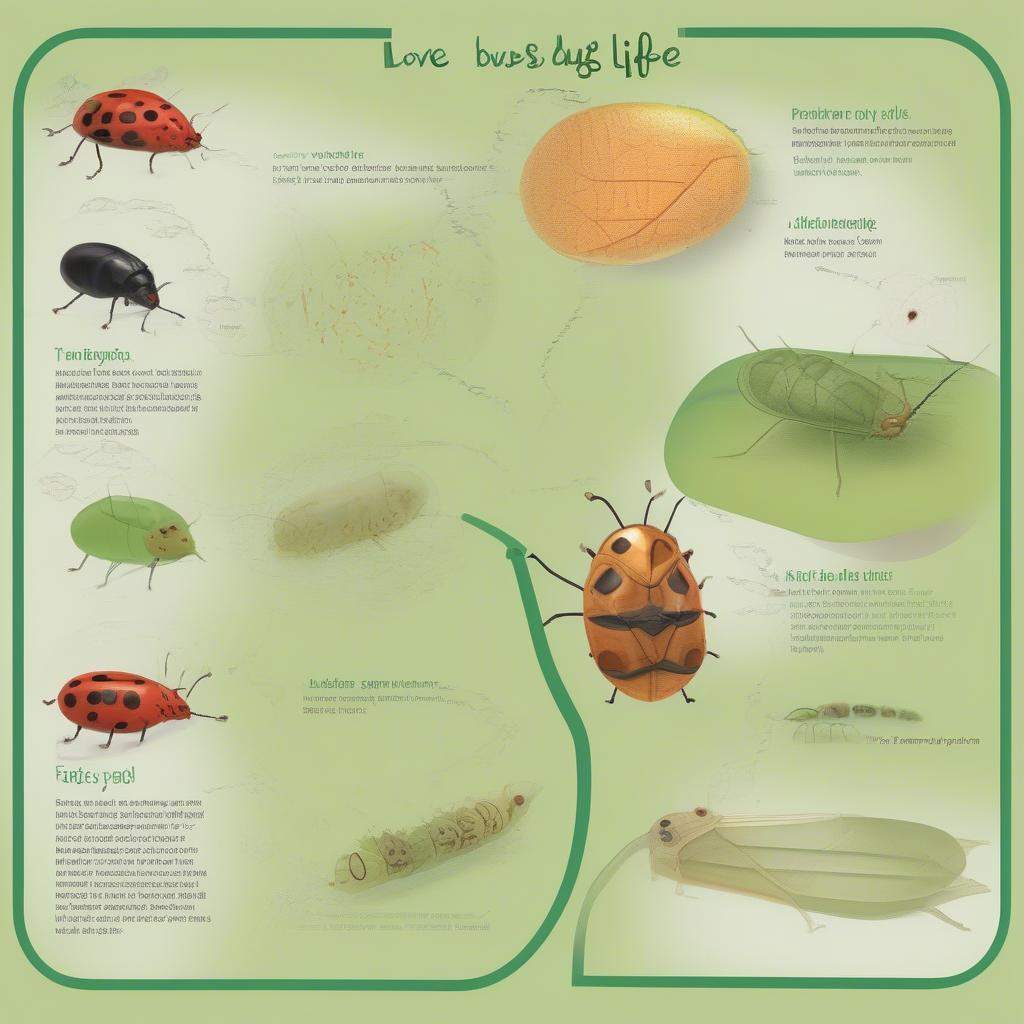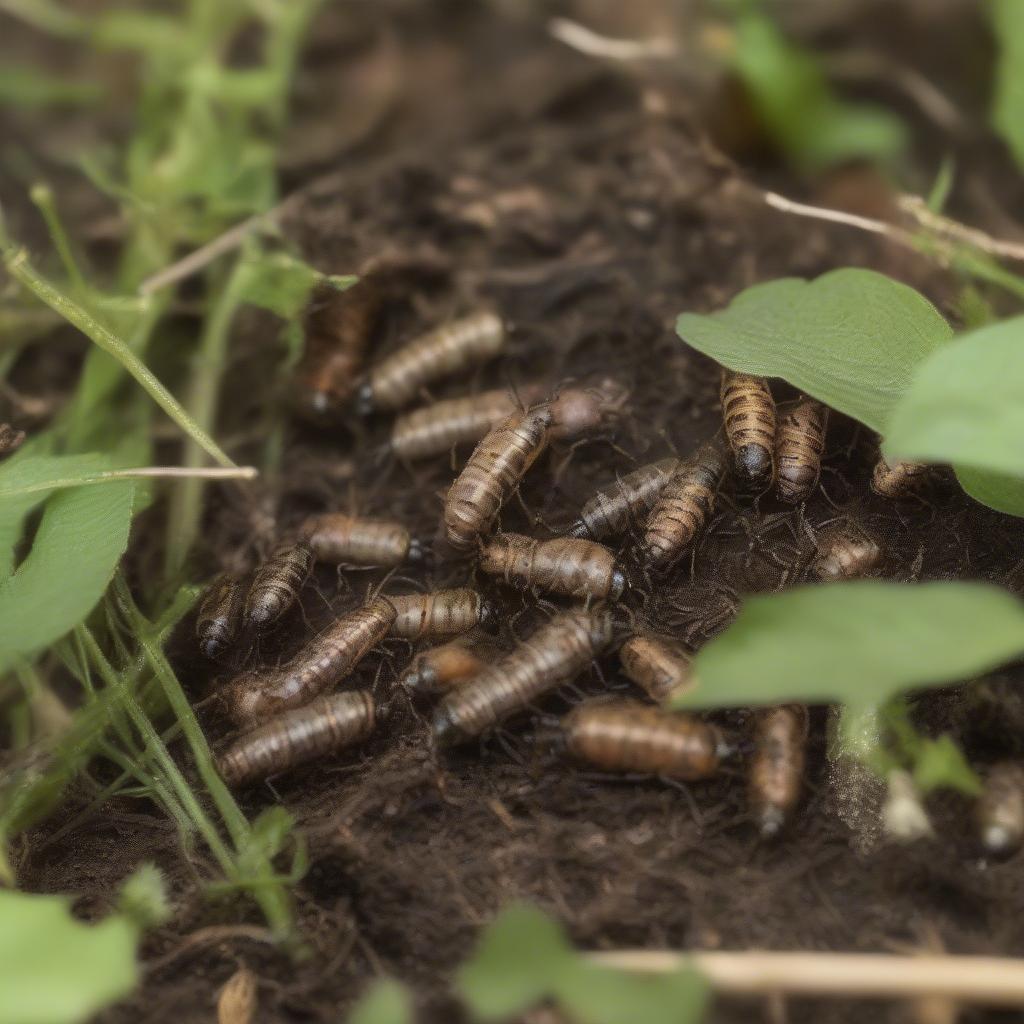Were Love Bugs Man Made? This intriguing question often pops up, especially when dealing with these amorous insects swarming during their mating season. Let’s delve into the science and separate fact from fiction surrounding these fascinating creatures.
The Truth About Love Bug Origins
Contrary to popular belief, love bugs, scientifically known as Plecia nearctica, are not man-made. They’re a natural part of the ecosystem, primarily found in the southeastern United States and parts of Mexico and Central America. The myth of their artificial creation likely stems from their sudden appearance in large numbers and their somewhat unusual mating behavior.
 Love Bugs in Mating Swarm
Love Bugs in Mating Swarm
Debunking the Man-Made Myth
Several theories contributed to the man-made myth. Some believed they were genetically engineered by the University of Florida to control mosquito populations. Others suggested they were accidental byproducts of experiments gone wrong. However, scientific evidence points to a much simpler explanation: natural migration and population growth.
Love Bug Life Cycle and Behavior
Understanding their life cycle helps explain their sudden appearances. Love bugs breed in decaying organic matter, particularly in grassy areas. Their larvae play a crucial role in breaking down this material, contributing to nutrient cycling in the environment.
 Love Bug Life Cycle Stages
Love Bug Life Cycle Stages
Why Are They Called “Love Bugs”?
Their nickname comes from their unique mating behavior. Adult love bugs spend most of their short adult lives paired together, even in flight. This constant coupling gives them the appearance of being perpetually in love, hence the name.
Are Love Bugs Harmful?
While not directly harmful to humans, they can be a nuisance. Their large swarms can obstruct visibility while driving and their acidic body fluids can damage car paint if not removed promptly.
Tips for Dealing with Love Bugs
- Clean your car regularly during love bug season to prevent paint damage.
- Use a specialized bug remover to effectively clean off love bug remains.
- Avoid driving during peak love bug activity, typically around midday.
The Impact of Love Bugs on the Ecosystem
Love bugs, despite their reputation as pests, play a vital role in their ecosystems. Their larvae contribute to nutrient cycling by breaking down organic matter, enriching the soil.
 Love Bug Larvae Decomposing Organic Matter
Love Bug Larvae Decomposing Organic Matter
Are Love Bug Populations Increasing?
While it may seem like love bug populations are increasing, there isn’t conclusive scientific evidence to support this claim. Their numbers fluctuate naturally depending on environmental factors such as rainfall and temperature.
Were Love Bugs Created in a Lab? A Final Answer
So, were love bugs man-made? The answer is a resounding no. They are a natural part of our ecosystem, albeit a sometimes annoying one. Understanding their role and life cycle helps us appreciate their place in the natural world.
Conclusion
The myth of man-made love bugs is a testament to the power of misinformation. These fascinating creatures, while sometimes a nuisance, play a crucial role in the ecosystem. Let’s appreciate their natural role and dispel the myths surrounding their origin. Were love bugs man made? Definitely not.
FAQ
- What do love bugs eat? Adult love bugs primarily feed on nectar, while their larvae decompose organic matter.
- How long do love bugs live? Adult love bugs typically live for only a few days, primarily to mate and reproduce.
- Where are love bugs found? They are primarily found in the southeastern United States, parts of Mexico, and Central America.
- Why do love bugs swarm? They swarm for mating purposes.
- How can I protect my car from love bug damage? Frequent cleaning with a specialized bug remover is recommended.
- Are love bugs harmful to humans? No, they are not directly harmful, but they can be a nuisance.
- Do love bugs bite? No, they do not bite.
If you need further assistance, please contact us at Email: contact@daiduongtranhba.com, address: Michigan Ave, Suite 3100, Chicago, IL 60611, USA. We have a 24/7 customer service team.


